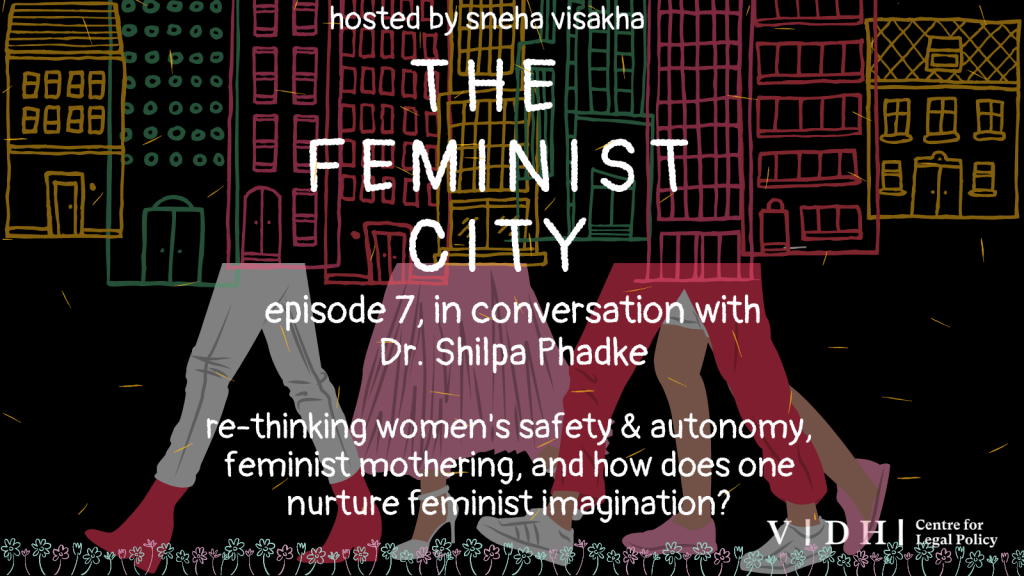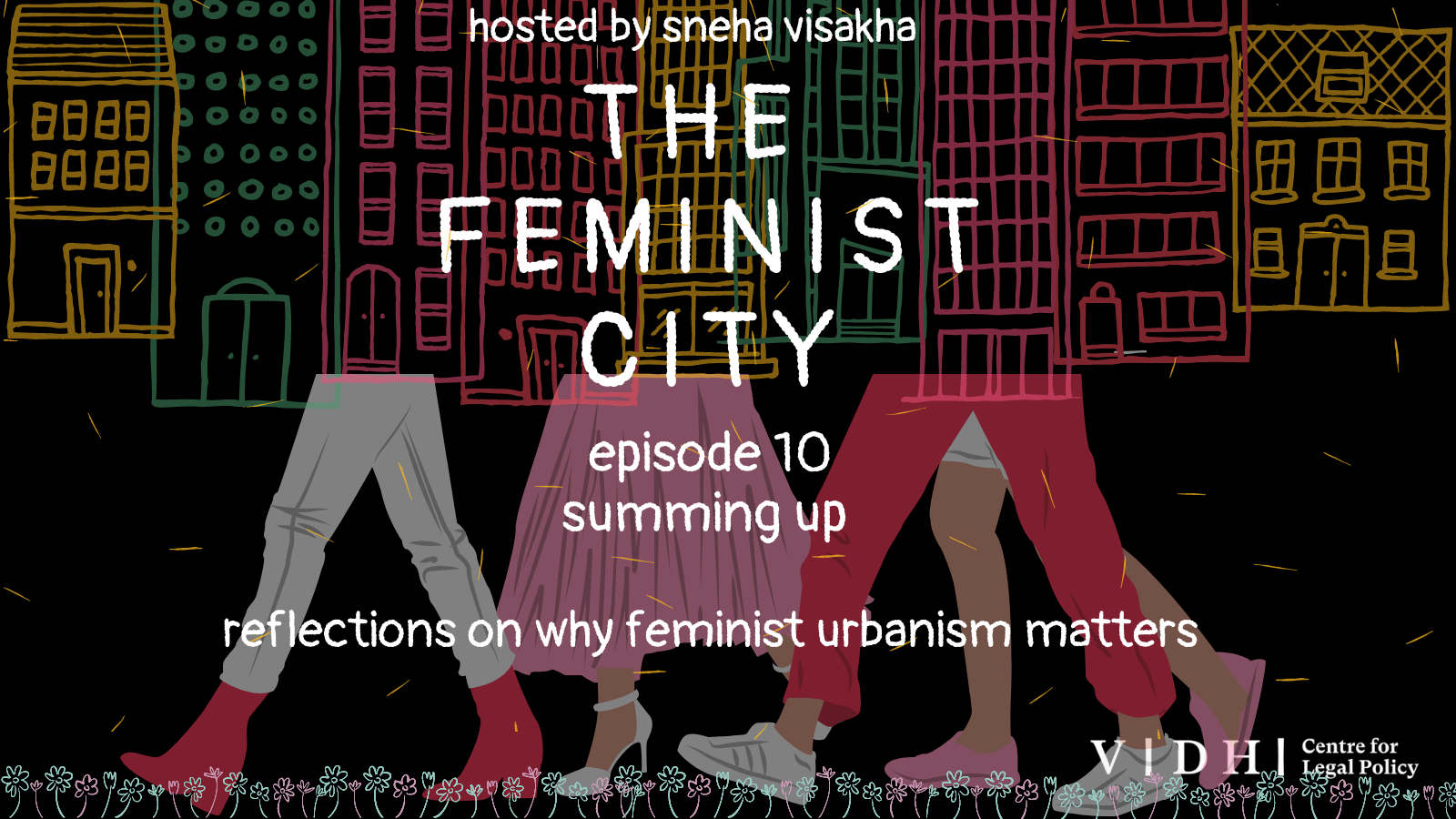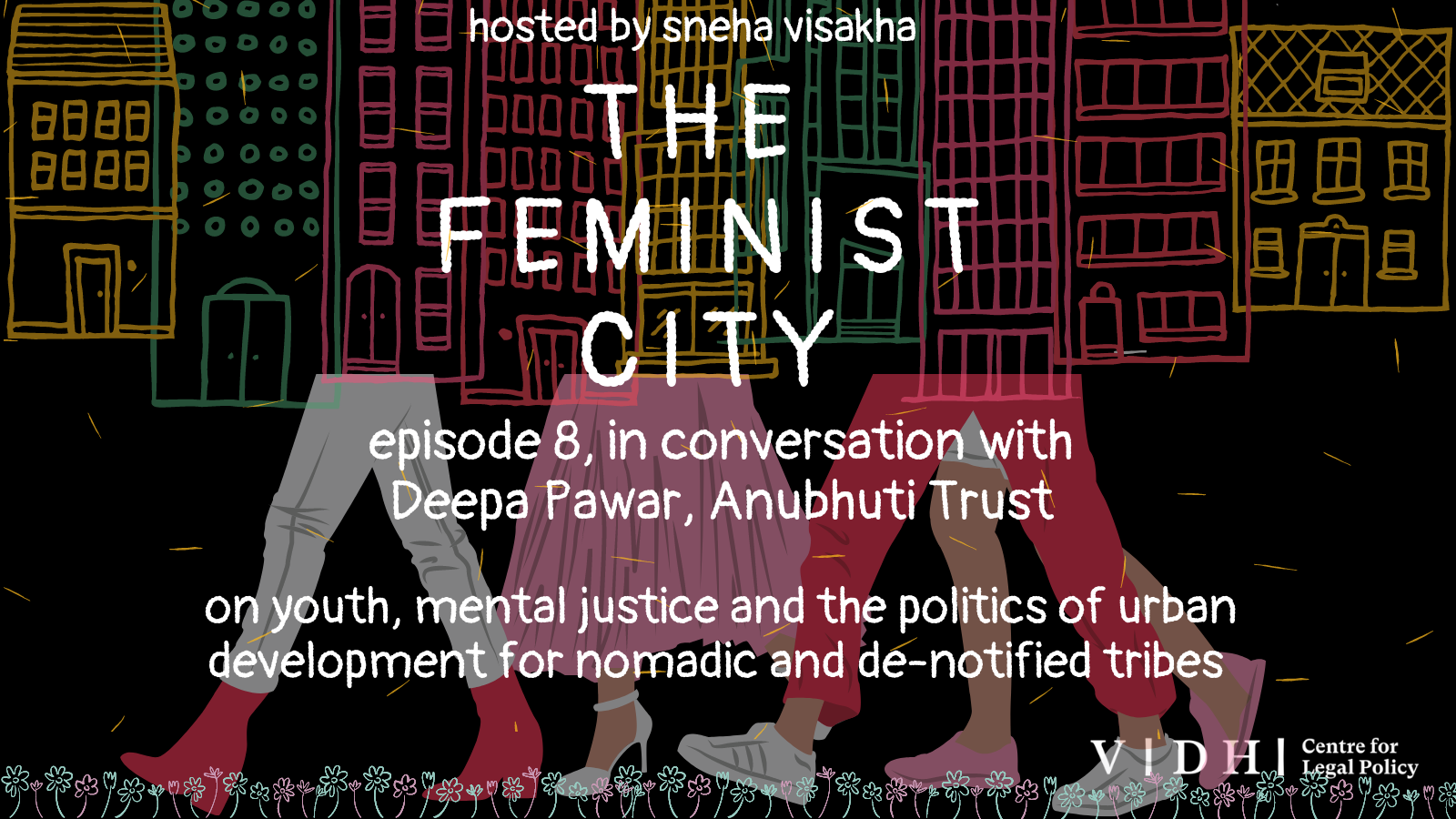
Producer and Host: Sneha Visakha
Intro Music: Wehrmut by Godmode
Outro Music: Opheliea’s Blues by Audionautix
Trigger Warning: references to gender-based violence and domestic violence
It has been a decade since the publication of Why Loiter? a book that changed the way we think about women’s safety, autonomy and how women and girls occupy the Indian city. In the seventh episode of the Feminist City, Sneha Visakha is in conversation with Dr. Shilpa Phadke, one of the authors. They talk about the ways thinking around women’s safety has changed or remained the same, about women claiming political citizenship, the way ‘love jihad’ is constructed to target the Muslim community while exercising control over women and girls, about how one can understand and embody the lessons of Why Loiter? a decade later in the background of the paternalistic, anti-democratic and neoliberal contexts we increasingly find ourselves in. They also discuss Dr. Phadke’s work on desexualising safety, the right to claim risk, what it means to be a feminist parent to children, and how does one nurture feminist imagination?
Dr. Shilpa Phadke is an Associate Professor at the Tata Institute of Social Sciences, Mumbai. You can read about her work here.
Readings
Why Loiter? Women and Risk on Mumbai Streets, Shilpa Phadke, Shilpa Ranade, Sameera Khan, Penguin India
Unfriendly Bodies, Hostile Cities: Reflections on Loitering and Gendered Public Space, Shilpa Phadke, Economic and Political Weekly
Dangerous Liaisons; Women and Men: Risk and Reputation in Mumbai, Shilpa Phadke, Economic and Political Weekly
If Women Could Risk Pleasure: Reinterpreting Violence in Public Space, Shilpa Phadke, in Bishakha Datta (ed.) Nine Degrees of Justice: New perspectives on violence against women in India, Zubaan
Feminist Mothering: Some Notes on Sexuality and Risk from Urban India, Shilpa Phadke, Journal of South Asian Studies
Sexual Violence and Sexuality Education – The Missing Link, Ketaki Chowkhani, Kafila
Habits of Leaking: Of Sluts and Network Cards, Wendy Chun & Sarah Friedland
Making a Feminist City – Planning Safety and Autonomy in the City, Sneha Visakha
Are women free to loiter on the streets of India in 2021? LiveMint
Reclaiming Our Public Spaces, Shiny Varghese, The Indian Express
Rest As A Form of Social Justice, NPR Interview with Tricia Hersey, founder, The Nap Ministry: Rest as Resistance
The History of Doing, An Illustrated Account of Movements of Women’s Rights and Feminism in India (1800 – 1990), Radha Kumar, Zubaan
How to Raise a Feminist Son, Sonora Jha, Penguin India


